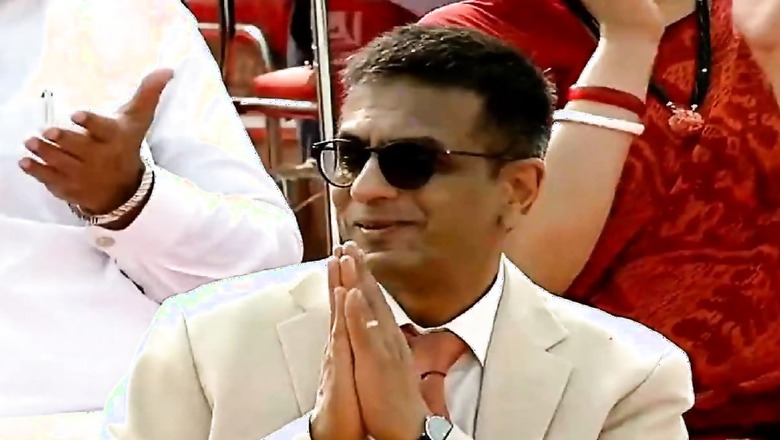
views
Prime Minister Narendra Modi on Tuesday praised the Supreme Court’s decision to translate the key elements of its judgments into regional languages. The Chief Justice of India D Y Chandrachud, who was among the dignitaries during the PM’s speech, acknowledged Modi’s praise with folded hands.
Addressing the nation from the ramparts of Red Fort on Independence Day, the Prime Minister said: “We have given the emphasis on teaching in the mother tongue.”
VIDEO | "I also thank the Supreme Court. It has said that the operative part of the judgments will be in one's mother tongue. The significance of the mother tongue is increasing,” said PM Modi in his Independence Day speech, earlier today.READ: https://t.co/ZaJqAxrnq5 pic.twitter.com/bduDwYtzyV
— Press Trust of India (@PTI_News) August 15, 2023
He observed that Supreme Court has decided to translate the operative part of the judgment in the language spoken by the litigant.
“I thank the Supreme Court. It has said that now the operative part of the judgment will be translated in the language the litigant speaks,” Modi said. CJI Chandrachud, who was amongst the audience, responded with a ‘namaste’ gesture.
“The relevance of mother tongue is increasing,” Modi said. The CJI had recently announced that the Supreme Court would use artificial intelligence to provide judgements, written in English, in regional languages.
CJI Chandrachud also reacted to PM Modi’s Independence Day speech from Red Fort and said, “PM today mentioned in his speech from Red Fort about the initiative of the SC in translating judgments in Indian languages, I’ll elaborate and tell you that 9,423 judgments have been translated so far… 8,977 judgments in Hindi… and we have covered so far Assamese, Bengali, Garo, Gujarati, Kannada, Malayalam, Marathi, Nepali, Odiya, Punjabi, Tamil, Telugu and Urdu.”
He added that effort is to ensure that all the 35,000 judgments of the Supreme Court since it’s inception are available to our citizens in every language.
Earlier, Justice Chandrachud had said that English, used for writing judgements, is not comprehensible, particularly in its legal avatar, to 99.9 per cent of our citizens. He said the top court would initially focus on translating judgments into four languages — Hindi, Tamil, Gujarati, and Odia and gradually, the verdicts will be made available in all scheduled languages.
Some of the high courts have also started providing judgements in regional languages apart from English. Earlier, the top court had decided to provide its judgments in nine regional languages in 2019 and the move was acknowledged and hailed by the then president Ram Nath Kovind.

















Comments
0 comment